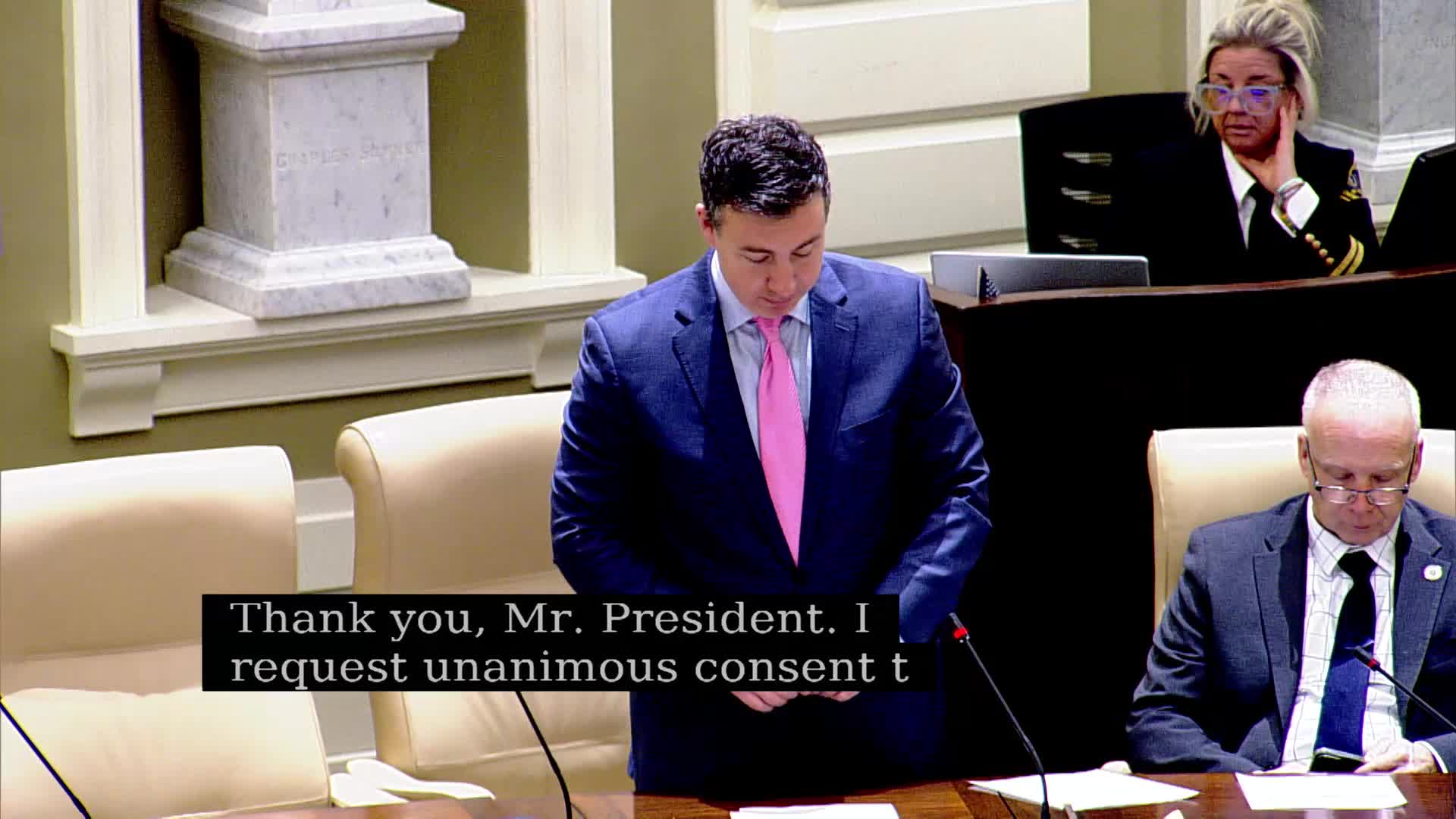Senator questions state handling of federal immigration detainers after headlines about shelter crimes
Get AI-powered insights, summaries, and transcripts
Subscribe
Summary
A state senator urged changes to how Massachusetts responds to federal immigration detainers, citing recent headlines and the 2017 Lund decision by the Massachusetts Supreme Judicial Court.
Senator Fabin, speaking on the Senate floor, pressed state government leaders and agencies to act on what he described as gaps in the Commonwealth's ability to keep communities safe when federal immigration authorities identify potentially dangerous individuals.
"What are we waiting for? Are we waiting for someone to be murdered? Are we waiting for someone to die?" Senator Fabin asked, citing recent news accounts he said involved people released from custody and criminal allegations. He described multiple headlines — including a Middlesex Superior Court case involving "a 38 year old Guatemalan national" arraigned on charges described in the record as "aggravated **** of a child with force and attempted **** of a child by force," a sexual assault of a minor that he said occurred in a state shelter, and a report of a Chelsea shelter resident alleged to be in possession of "$1,000,000 of drugs including Fentanyl and cocaine, and an AR 15." He attributed those examples to press reports and framed them as reasons the Legislature and executive branch should reconsider state practice.
Fabin focused much of his remarks on the Lund decision by the Massachusetts Supreme Judicial Court and on a trial-court policy he characterized as creating barriers to communication with federal immigration authorities. He quoted the policy on the Senate floor: "request by Department of Homeland Security officials for information regarding an individual or an individual's case, whether made in a civil immigration detainer or made directly to court personnel shall be treated by court employees in the same manner as would be a request for information from other members of the general public." He called that approach "outrageous" and said it treated Department of Homeland Security inquiries like "Joe Blow from the street."
Fabin urged colleagues to change state law or practice, saying the Lund decision "essentially determined that Massachusetts law provides no authority for Massachusetts court officers to arrest and hold an individual solely on the basis of a federal civil immigration detainer beyond the time that the individual would otherwise be entitled to be released from state custody." He said lawmakers had not changed the standard since the 2017 decision and vowed to continue efforts to do so.
The senator pointed to California as an example of a state that permits certain communication between state courts and federal immigration enforcement. He did not introduce a specific bill on the floor during this statement, and no formal vote related to detainer policy was taken during the recorded portion of the session.
Fabin concluded: "Are we waiting for someone to die for the benefit of our communities, for the safety of our families? This must end, and my answer is no."
